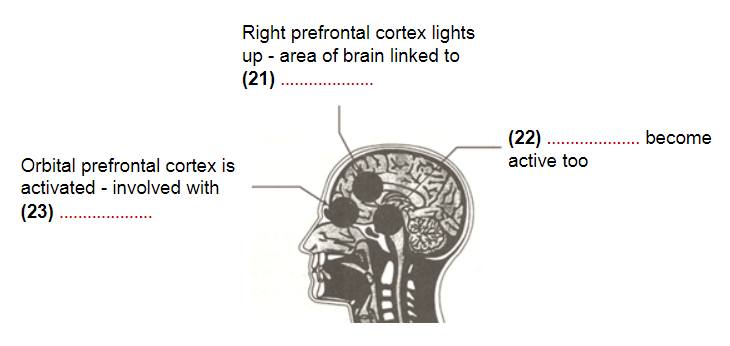IELTS Reading 3 - Passage 2
Exam information: True / False / Not Given
This type of question tests if you can identify whether information is correct or not. You are given a factual statement and you have to check in a text if it is true. It is important not to use your own knowledge to answer the questions; the answer must come from the text.
The information in the text will be in the same order as the questions.
Questions 14-20
Do the following statements agree with the information given in Reading Passage 2?
In boxes 14-20 on your answer sheet write
TRUEif the statement agrees with the information
FALSEif the statement contradicts the information
NOT GIVENif there is no information on this
14Arthur Koestler considered laughter biologically important in several ways.
15Plato believed humour to be a sign of above-average intelligence.
16Kant believed that a successful joke involves the controlled release of nervous energy.
17Current thinking on humour has largely ignored Aristotle's view on the subject.
18Graeme Ritchie's work links jokes to artificial intelligence.
19Most comedians use personal situations as a source of humour.
20Chimpanzees make particular noises when they are playing.
IELTS Reading Tip: Completing diagram labels
In the exam, you may be asked to read a passage and use words from it to complete labels on a diagram or picture. The answers will often come from a particular section of the text and may not be in the same order as the questions.
Questions 21-23
The diagram below shows the areas of the brain activated by jokes.
Label the diagram.
Choose NO MORE THAN TWO WORDS from the passage for each answer.
Write your answers in boxes 21-23 on your answer sheet.

21Right prefrontal cortex lights up - area of brain linked to
22 become active too
23Orbital prefrontal cortex is activated - involved with
Questions 24-27
Complete each sentence with the correct ending, A-G, below.
Write your answers in boxes 24-27 on your answer sheet.
24One of the brain's most difficult tasks is to
25Because of the language they have developed, humans
26Individual responses to humour
27Peter Derks believes that humour